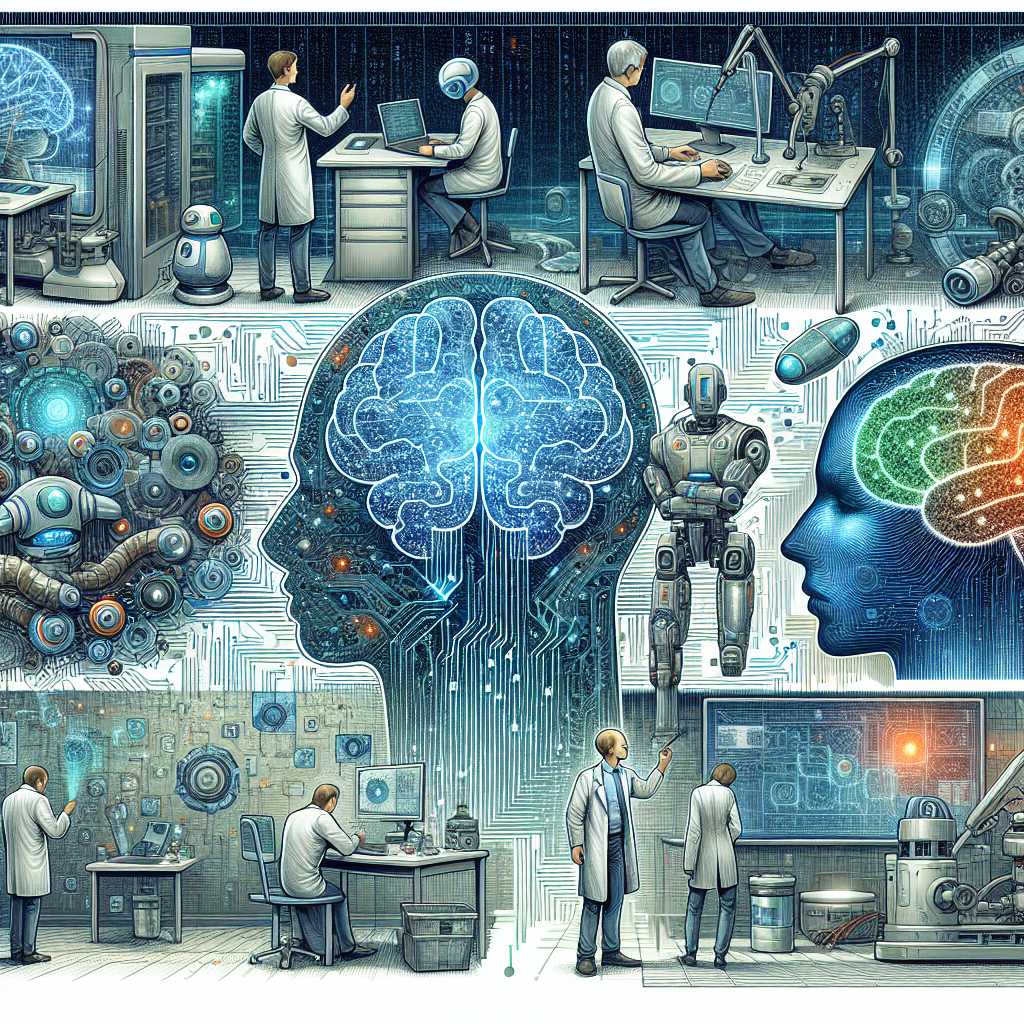Artificial General Intelligence (AGI) refers to the development of machines that possess the ability to understand, learn, and apply knowledge in a way that is comparable to human intelligence. While artificial intelligence (AI) has made significant advancements in recent years, AGI remains a frontier that researchers are actively pursuing. In this article, we will explore the latest breakthroughs in AGI research and discuss the implications of these advancements.
The field of AGI research is vast and multidisciplinary, encompassing computer science, cognitive psychology, neuroscience, and philosophy. Researchers are working towards creating machines that can perform a wide range of cognitive tasks, such as reasoning, problem-solving, planning, and learning. The ultimate goal is to develop machines that can think and act autonomously, without the need for human intervention.
One of the key challenges in AGI research is developing algorithms that can generalize across different domains and adapt to new situations. Traditional AI systems are often designed to perform specific tasks within a narrow domain, such as playing chess or recognizing objects in images. AGI, on the other hand, requires the ability to transfer knowledge and skills from one domain to another, much like humans can learn a new skill by drawing on their existing knowledge and experiences.
Recent breakthroughs in AGI research have focused on developing algorithms that can learn from limited data and generalize to new tasks. One approach that has shown promise is reinforcement learning, where an agent learns to perform a task by interacting with its environment and receiving rewards for achieving specific goals. By using reinforcement learning, researchers have been able to develop AI systems that can excel at playing games, such as Go and StarCraft, and even outperform human players.
Another area of research that has seen significant progress is deep learning, a subset of machine learning that uses artificial neural networks to model complex patterns in data. Deep learning has been used to create AI systems that can understand natural language, generate realistic images, and even compose music. By leveraging the power of deep learning, researchers have been able to push the boundaries of what AI systems can achieve and bring us closer to the goal of AGI.
In addition to advances in algorithms, researchers are also exploring new hardware architectures that can support the computational demands of AGI. Traditional AI systems rely on specialized hardware, such as graphics processing units (GPUs), to accelerate the training of neural networks. However, AGI requires even more powerful hardware to handle the complexity of human-like intelligence. Researchers are experimenting with neuromorphic computing, quantum computing, and other emerging technologies to develop hardware that can support the next generation of AI systems.
The implications of AGI breakthroughs are far-reaching and have the potential to revolutionize industries, improve healthcare, and transform society as a whole. AGI systems could automate tedious tasks, enhance decision-making, and accelerate scientific discovery. They could also raise ethical and societal concerns, such as privacy, bias, and job displacement. As researchers continue to make progress in AGI research, it is crucial to consider the ethical and societal implications of deploying these systems in the real world.
In conclusion, AGI research is an exciting and rapidly evolving field that holds the promise of creating machines with human-like intelligence. Recent breakthroughs in algorithms, hardware, and applications have brought us closer to achieving AGI than ever before. While there are still many challenges to overcome, researchers are making significant strides towards developing machines that can think, learn, and act autonomously. The future of AGI is bright, and the possibilities are endless.
FAQs:
Q: What is the difference between AI and AGI?
A: AI refers to machines that can perform specific tasks within a narrow domain, while AGI refers to machines that possess human-like intelligence and can adapt to new situations.
Q: How close are we to achieving AGI?
A: While significant progress has been made in AGI research, we are still far from creating machines that can match the cognitive abilities of humans.
Q: What are the ethical implications of AGI?
A: AGI systems raise ethical concerns related to privacy, bias, job displacement, and the impact on society as a whole. It is crucial to consider these implications as we continue to develop AGI technologies.
Q: How can I get involved in AGI research?
A: If you are interested in AGI research, you can pursue a degree in computer science, artificial intelligence, or a related field. You can also participate in research projects, attend conferences, and collaborate with researchers in the field.

